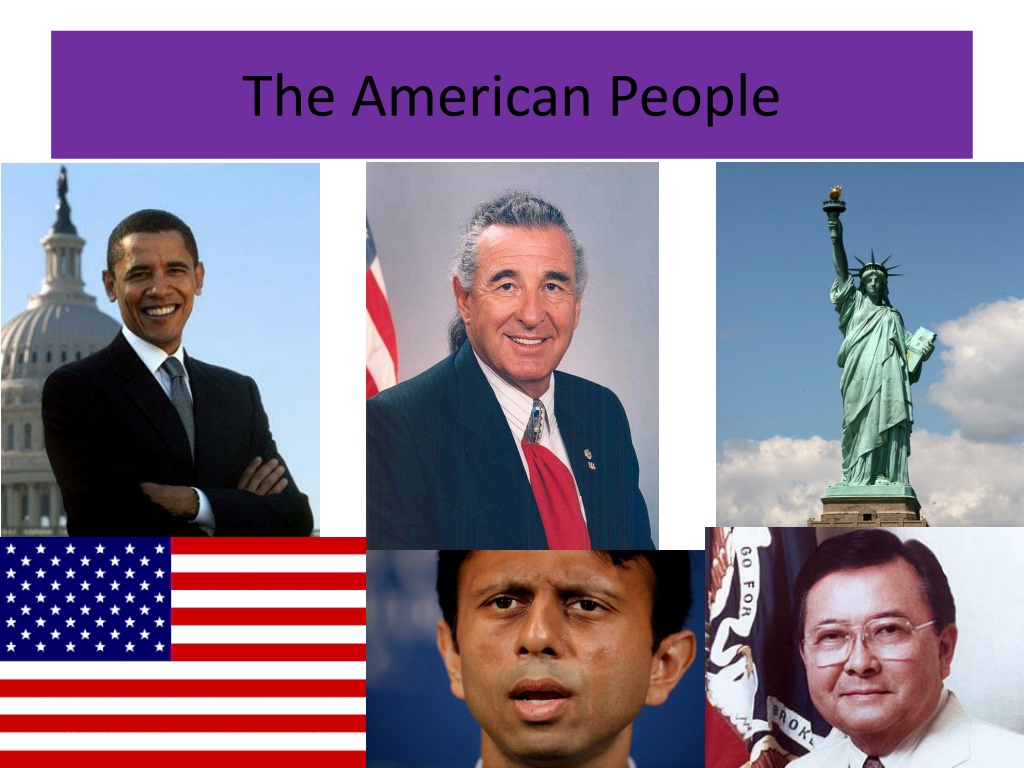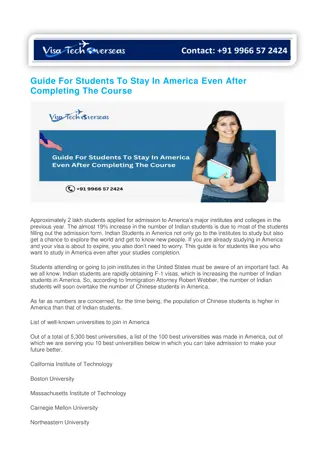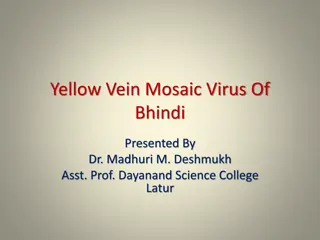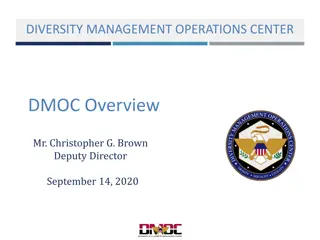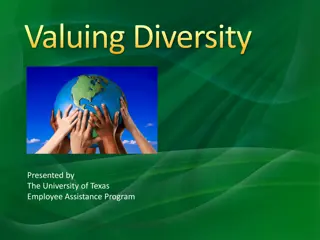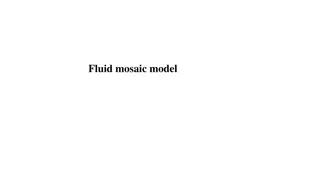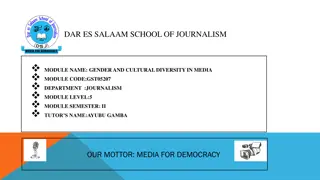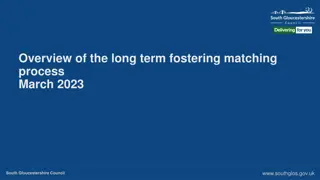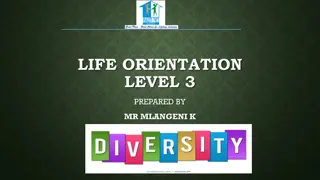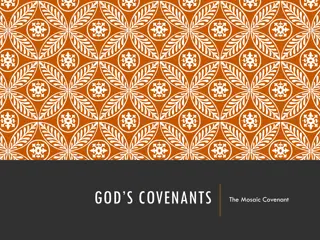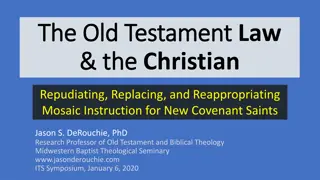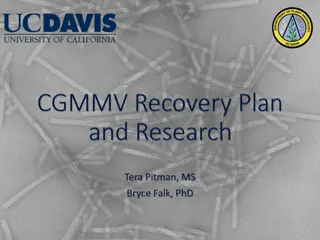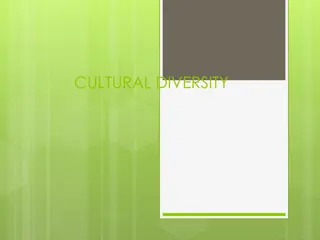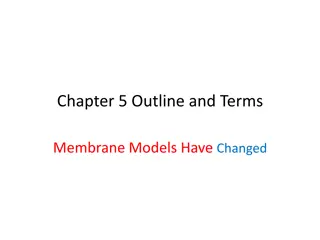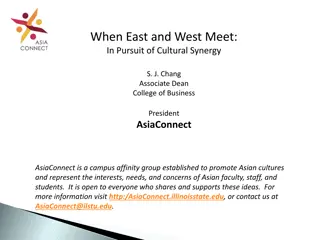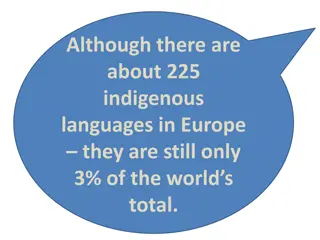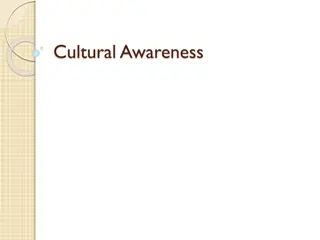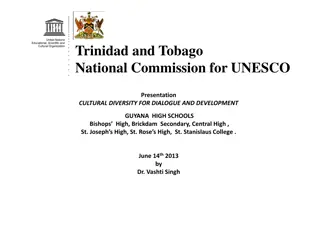Diversity of People in America: A Cultural Mosaic
America is a melting pot of cultures with a rich history of immigration and diverse ethnicities. The population comprises a blend of ethnic groups, with various religions contributing to the vibrant tapestry of American society.
Download Presentation

Please find below an Image/Link to download the presentation.
The content on the website is provided AS IS for your information and personal use only. It may not be sold, licensed, or shared on other websites without obtaining consent from the author. Download presentation by click this link. If you encounter any issues during the download, it is possible that the publisher has removed the file from their server.
E N D
Presentation Transcript
Civics and Citizenship Civics is the study of the rights and duties of citizens Citizens are community members who owe loyalty to the government and are entitled to protection from it Citizenship is the rights and duties of members of a state
E pluribus Unum Out of many, one America is a nation of immigrants Early immigration starting in the 1600 s people from mainly England and France came to America in the late 1600 s and the 1700 s, immigrants from Germany, the Netherlands, Ireland, Scotland, and Sweden joined these English settlers After Independence in the early to mid 1800 s, many immigrants came from Denmark, Norway, and Sweden
E pluribus Unum A shift in Immigration about 22 million immigrants arrived between 1890 and 1924, most of them came from southern and eastern European countries like Italy, Greece, Poland, and Russia Asia now is the biggest source of immigrants Enslaved Africans Between 1619 and 1808, some 500,000 people were brought to America as slaves from western and central Africa
Immigration File:Census-2000-Data-Top-US-Ancestries-by-County.svg
A Diverse Population Ethnic relation to races or groups of people who share common traits and customs Many Americans today do not identify themselves as members of a single-ethnic group. 234 million whites of European descent 37 million African Americans 39 million Latinos people of any race who trace their ancestry to the Spanish-speaking countries 12 million Asians and Pacific Islanders 2.8 million Native Americans
Religions as a Percentage of Population Religious Affiliation, General Population Surveys ARISa GSSa Christian 76.7% Protestant 49.8% Catholic 24.5% PRCc 81.3 53.9 25.2 Baylord 81.9 60.7 21.2 50.4 25.1 Other Christian 2.4% 2.2 Jewish Muslim Non-affiliated Other/DK 1.4% 0.5% 14.2% 7.2% 2.2 0.7 14.2 7.4 1.9 0.5 11.8 4.5 2.5 10.8 4.9
Americas Values Values the general principles. Or beliefs, you use to make decisions Shared values unite Americans Basic American Values: freedom, equality, opportunity, justice, democracy, unity, respect, and tolerance A belief in democratic principles like popular sovereignty unites Americans A shared language (English) also unites Americans
American Institutions Each Society has its own social institutions, or sets of ideas that people have about relationships, obligations, roles, and functions of society The most important institution in American life is the family Other institutions include churches, schools, and social institutions like 4-H or Boy Scouts There are also governmental institutions
Who Are Americas Citizens? The US Constitution provides two ways to become a citizen: by birth and by naturalization.
Citizenship By Birth Citizenship of the soil if you are born anywhere in the United States, in the District of Columbia, in a US territory, or on a US Military base, you automatically become an American Citizen at birth Citizenship of the blood if at least one of your parents is a citizen who has lived in the US you can become a citizen. You could also hold dual citizenship if born to US parents abroad
The Naturalization Process Naturalization is the legal process by which an alien obtains citizenship 1. The person first signs a Declaration of Intention which is filed with the US Citizenship and Immigration Services. After five years, three if married to a US citizen, they may file an application for citizenship if they are at least 18 2. The person then has an interview with an USCIS official and takes an examination 3. If they pass, they attend a ceremony and take an oath of allegiance - their children obtain it as well
Losing Citizenship Only the Federal Government can grant or take away citizenship The loss of citizenship through fraud or deception during the naturalization process is called denaturalization Giving up citizenship by moving to another country is called expatriation. If you become a citizen of another country, you automatically lose your US citizenship You can lose your citizenship when convicted of certain federal crimes like treason
Aliens in America Alien live in the US to study or work or visit temporarily or with the intention of becoming citizens Immigrants are people who move permanently to a new country they intend to apply for citizenship Resident aliens a person from a foreign country who has established permanent residence in the US, but does not wish to become a US citizen
Aliens in America Nonresident aliens a person from a foreign country who expects to stay for a short specified period Refugees - people fleeing their country to escape persecution may become citizens or return to their country Legal Aliens live much like other US citizens working jobs and paying taxes and owning property, but they do not have full political rights.
Aliens in America Illegal Aliens - people who come to this country without permission or who stay longer than they were supposed to. They get here in many way They enter legally, but do not leave when their permit is up They illegally cross our borders If they are caught they are deported sent back to their own country
The Need for Government Government is the ruling authority for a community, or society any organization that has the power to make and enforce, or carry out, laws and decisions for its members acts as a government What Governments do: Keep order ex. Pass and enforce traffic laws, establish courts Provide security ex. Prevents crime, protects citizens from foreign attacks
The Need for Government Provide services provides libraries, schools, hospitals, parks, water, utilities Guide the Community manage the economy, and conduct foreign relations they formulate public policy a course of government action to achieve community goals they create a budget, or a plan for collection, and spending money
Levels of Government National Government (also called Federal) The government for the entire country Three branches: legislative, judicial, and executive The national government has the highest level of authority over its citizens no state or local government can make any laws that would go against the laws of the national government The national government provides the basic framework for citizenship
Levels of Government State and Local Governments Each state decides matters for the people in that state Local government is the level closest to the people Local government includes counties, cities, and towns State and local governments, as well as governments of organizations, cannot take actions that go against the laws and authority of the national government
Types of Government Democratic Government Democracy a government in which citizens hold the power to rule Direct Democracy a form of democracy in which the people vote firsthand Republic (representative democracy) a system of limited government in which the people are the ultimate source of governmental power the US is the oldest representative democracy in the world Constitutional Monarchy a mostly democratic government with a limited hereditary ruler - England
Types of Government Democratic Principles Rule of law all people, including those who govern, are bound by the law Limited government government is not all- powerful it may do only those things that the people have given it the power to do Consent of the governed American citizens are the source of all government power Individual rights in the American democracy, individual rights are protected by government Representative government people elect government leaders to make laws and govern on their behalf
Types of Government All genuine democracies have free, fair, and competitive elections one person, one vote voting requirements must be kept to a minimum Competitive elections and competing political parties are an important element in democracies Majority rule citizens agree that when differences of opinion arise, they will abide by what most people want. At the same time, they respect the rights of those in the minority
Types of Government Authoritarian Governments power is held by an individual or a group not accountable to the people Absolute Monarchy when virtually all political power is held by a monarch Saudi Arabia Dictatorships when virtually all political power is held by one individual (the dictator) who usually has taken the power through force Saddam Hussein Totalitarianism when a dictator extends their power to almost all aspects of the people s lives. Nazi Germany would be an example
